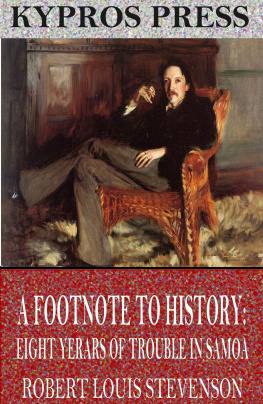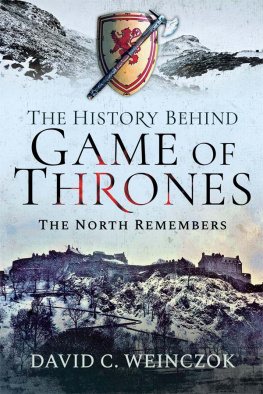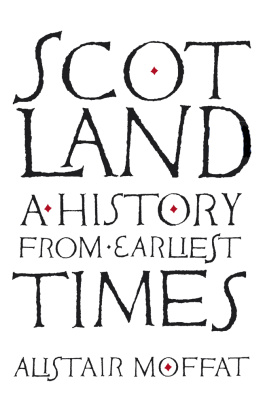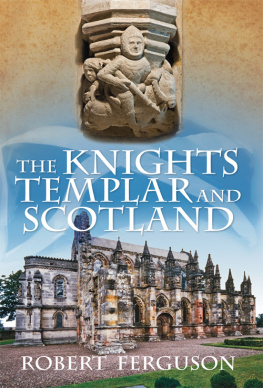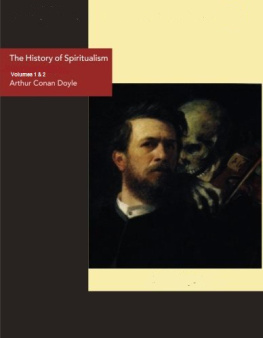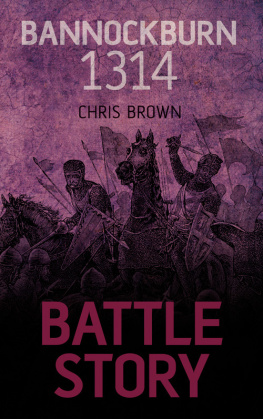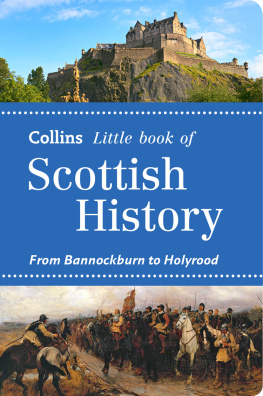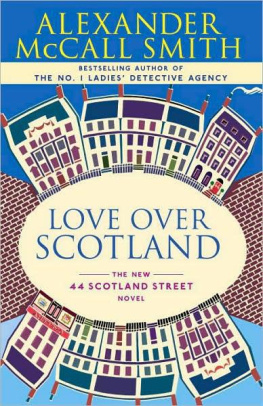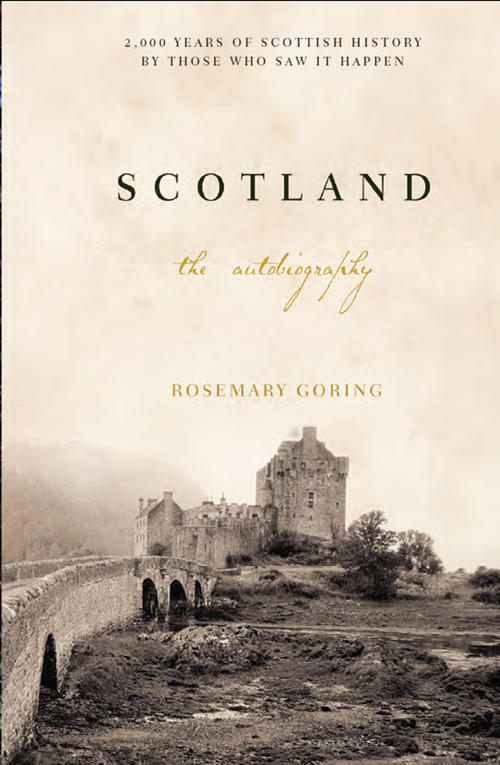This edition first published in the United States in 2008 by
The Overlook Press, Peter Mayer Publishers, Inc.
NEW YORK:
141 Wooster Street
New York, NY 10012
Copyright 2007 by Rosemary Goring
All rights reserved. No part of this publication may be reproduced or transmitted in any form or by any means, electronic or mechanical, including photocopy, recording, or any information storage and retrieval system now known or to be invented, without permission in writing from the publisher, except by a reviewer who wishes to quote brief passages in connection with a review written for inclusion in a magazine, newspaper, or broadcast.
ISBN 978-1-46830-312-4
For Tom and Marie
Scotland small? Our multiform, our infinite Scotland small?
Only as a patch of hillside may be a clich corner
To a fool who cries Nothing but heather!
Hugh MacDiarmid
In a spartan study on the north side of St Andrews, in the days of Margaret Thatchers political reign, one of the most important figures in the making of modern Scotland could be found at work at his desk in a gloomy bay window rattled by sea winds. Though he was usually dressed in jeans and trainers, his hair tousled, his expression owlishly vague, there was no mistaking the rapier mind behind the genial personality and gentle voice. Unlike the Prime Minister, this man did believe in society. He believed in it so passionately that he spent his career unearthing evidence that would illuminate the lives of people at every level of the social scale.
This man was Professor T. C. Smout, godfather of Scottish social and economic history, who in 1980 had moved from Edinburgh University to St Andrews, thereby establishing its reputation as a cradle of progressive Scottish history in the latter part of the twentieth century. There could hardly be a better location to inspire the exploration of Scotlands past than this rocky east coast outpost. Few places are more steeped in dramatic event and blood. A short distance from Smouts study was the spot where the mild and forgiving George Wishart was hanged and burned, after kissing his executioner on the cheek; only a few miles away was the moor where turncoat Archbishop Sharp was dragged from his coach and run through by Covenanting extremists. John Knox had taken shelter in St Andrews Castle, a short sprint from Smouts door, while the story of golf, which found its spiritual home here under the Victorians, unfolded almost within earshot of the history department. Here too, a future king, William Windsor, came to study, leaving the town reeling in the wake of paparazzi and blonde-haired and gleaming-toothed fortune-hunters, not to mention a legacy of manholes sealed like tombs.
For a year in the early 1980s I was a student of T. C. Smout, one of only a handful studying for a degree in social and economic history, and one of only two the other was a Scouser who had chosen to take the course he ran on original sources for Scottish history. Here we discovered that while history has largely been written by those in positions of authority, it was possible to discover what those without power thought and how they behaved. Church and court records, for instance, offered a trove of insight into the lives of ordinary people, whether it was the servant indicted for fornication, the husband charged with his wifes murder, or the pauper unwanted in any parish. Read between the lines of a farmers will, and youd hear the farmer himself. Presented with material such as this, its not surprising one came away from tutorials with curiosity well and truly piqued. After taking this course, Scotland looked different.
And so it might. When, in 1969, Smout published A History of the Scottish People 15601830, the nature of Scottish history shifted on its axis. A groundbreaking work of deep research and reflection, it represented a turning point not only in historiography, but, as its influence percolated into the mainstream, in the way Scots viewed themselves and their heritage. Though there had been distinguished social and economic historians at work in Scotland long before Smout, none had attempted such a comprehensive recalibrating of the countrys history from a social perspective, that of trying to understand the experiences and environment of ordinary Scots rather than merely their governing elite, and of their ordinary lives, rather than only the rarefied habits of their social superiors. In this Smout was part of the new wave of historical research sweeping Europe and America, in which the little mans history, the seemingly unimportant persons tale, was finally to be given its place on the stage. Those who formed the bedrock of history were at last being exhumed.
In the decades since, ranks of younger historians have assiduously trawled for evidence that illuminates the social history of our nation, thereby beginning to fill in the wasteland of silence and ignorance. That it took an Englishman to effect this revolution is not the least fascinating aspect of Smouts influence within the academic community. Since followed by an array of eminent successors, pre-eminent among them Professor Tom Devine, he and his fellow historians have arguably done more in their time for the Scots than any other discipline or establishment. History may be going out of fashion in schools, but as publishers lists and TV documentaries plainly show, hunger for understanding the past, especially from a social and economic perspective, cannot be satisfied. As newspaper editors are perhaps too well aware, the power of the human voice telling its own story never loses its appeal.
Before T. C. Smout, with only a few exceptions such as H. G. Grahams magnificent The Social Life of Scotland in the Eighteenth Century, the history of Scotland used to be the history of its royalty and rulers principally William Wallace, Mary, Queen of Scots and Bonnie Prince Charlie of its aristocracy, its politicians, and of a handful of national disasters that affected the common people, such as the famines of the late seventeenth century, or the Highland (never the Lowland) Clearances. The subject was dominated by so-called victim history, a trend perpetuated in schools in the hope that the gorier the material, the more appealing it would be to a generation unfairly presumed to start from a point of zero interest in the past.
With the approach of Devolution, however, the telling of the past as a perpetual dirge was deemed unhelpful. People began to yearn for a rewriting of history, of the sort offered by the American historian Arthur Herman, who argued that with the flowering of the Scottish Enlightenment Scots effectively made the modern world, offering a framework for philosophical thought, economic know-how and scientific exploration that other nations eagerly embraced. This up-beat, can-do, top-of-the-class version of events was particularly popular with nationalists: those, for instance, who like to point to the plethora of Scots today running Britain, not just Scotland. Many take justifiable delight in the fact that arguably the two most important inventions of modern times the telephone and the television were the brainchildren of Scots, while the first successful steps in the world-changing process of cloning took place on the outskirts of Edinburgh in a part of the country previously better known as the home of Rosslyn Chapel and the sort of religious superstition that later fuelled the Da Vinci Code.
Depending on what lens you choose, it would be possible to portray the past as nothing more than a litany of poverty and misery; or to see it as an ever-boiling stew of religious bigotry and fanaticism; to point only to the glowing roll-call of innovation, or focus more upon those who left, from explorers to novelists and entrepreneurs. One could narrow the frame to an inspiring list of intellectual genius and educational excellence, or imagine the past as a tale of unrelenting oppression and stoicism.


